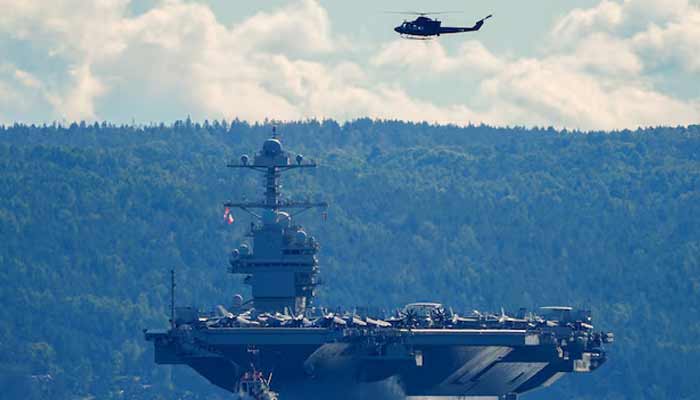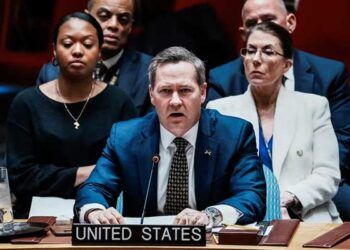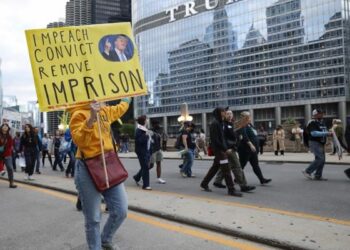Select Language:
A US aircraft carrier strike group has reached Latin America, intensifying military activities amid warnings from Venezuela that this could spark a full-scale conflict, especially as the country announces its own military mobilization. The USS Gerald R. Ford, the largest aircraft carrier globally, has entered the operational zone of the US Naval Forces Southern Command, which covers Latin America and the Caribbean, according to an official statement.
This deployment was coordinated almost three weeks ago as part of efforts to combat drug trafficking in the area. Pentagon spokesperson Sean Parnell stated that the ship’s presence will enhance US capabilities to detect, monitor, and disrupt illicit activities that threaten regional safety and US national security in the Western Hemisphere.
Under the Trump administration, the US has been conducting a military campaign in the Caribbean and eastern Pacific, deploying naval and air units in an anti-drug operation. Caracas perceives this buildup—including F-35 stealth fighters sent to Puerto Rico and six US Navy ships in the Caribbean—as an undercover plan to overthrow the regime.
President Nicolas Maduro, whose recent reelections have been labeled as fraudulent by the US and numerous other nations, accuses Washington of “manufacturing a war.” While Trump downplayed the likelihood of an armed conflict with Venezuela on November 2, he claimed Maduro’s grip on power is weakening.
Since early September, US forces have targeted at least 20 vessels in international waters near this region, resulting in the deaths of no less than 76 individuals, according to US reports. These strikes have been justified by President Trump’s administration as part of a broader “armed conflict” with Latin American drug cartels, which Washington has labeled as terrorist organizations, although no concrete evidence has been provided linking these vessels to drug smuggling. Critics argue that these actions amount to extrajudicial killings.
Venezuela responded Tuesday by launching what it described as a major, nationwide military mobilization to oppose the US naval presence. The Venezuelan Defense Ministry described this as a “massive deployment” involving land, sea, air, river, missile forces, and civilian militias to counter what it views as imperial threats. State television aired footage of military leaders addressing citizens from multiple states, though such announcements are routine in Venezuela and don’t always lead to actual troop movements.
Analysts highlight Venezuela’s military limitations, citing an untrained force and outdated equipment, indicating the country would struggle in a direct confrontation with the US. Russia condemned the US strikes against vessels linked to Venezuela—an ally of Moscow—as illegal and unacceptable, with Foreign Minister Sergei Lavrov criticizing what he called lawless acts and questioning the supposed pretext of fighting drug traffickers.
Maduro’s government heavily depends on Moscow for political and economic support. Recently, US-Russia relations have cooled, especially over Moscow’s handling of the Ukraine conflict. Meanwhile, the UK refrained from commenting on reports that it has ceased sharing intelligence with the US regarding suspected drug vessels in the Caribbean, citing a desire not to be complicit in any strikes. A UK government spokesperson emphasized that decisions on military intelligence are ultimately American, and the UK remains a close partner in defense and security matters.






